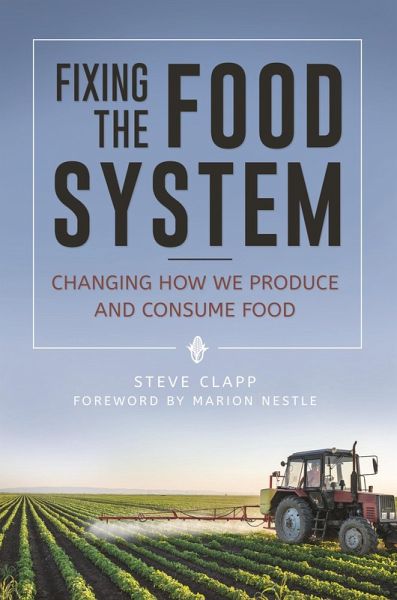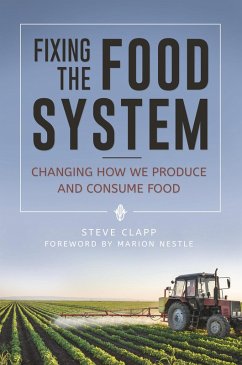
Fixing the Food System (eBook, ePUB)
Changing How We Produce and Consume Food
Versandkostenfrei!
Sofort per Download lieferbar
34,95 €
inkl. MwSt.
Weitere Ausgaben:

PAYBACK Punkte
17 °P sammeln!
America's broken food system has provoked an outcry from consumer advocates seeking to align food policies with public health objectives. This book examines both sides of the conflict for solutions. Many believe that America's food system is in dire need of reform, with concerns ranging from the obesity epidemic to exploitative labor practices and negative environmental impact. This eye-opening book answers provocative questions about what changes are needed, who is advocating the changes, what parties are opposing these changes (and why), and what a new food system would look like. Organized ...
America's broken food system has provoked an outcry from consumer advocates seeking to align food policies with public health objectives. This book examines both sides of the conflict for solutions. Many believe that America's food system is in dire need of reform, with concerns ranging from the obesity epidemic to exploitative labor practices and negative environmental impact. This eye-opening book answers provocative questions about what changes are needed, who is advocating the changes, what parties are opposing these changes (and why), and what a new food system would look like. Organized into three sections, the work identifies the problems with the current system, reviews the changing landscape of food policy, and suggests workable solutions for progress. Washington insider Steve Clapp takes a comprehensive look at the struggle over the future of food. He examines the vision for a reformed national food policy that includes calculating the true cost of food, providing universal access to healthful food, adopting farm policies supporting public health and environmental objectives, improving food safety, paying fair wages to food employees, treating food animals with compassion, and reducing the food system's carbon footprint. The book explores the ways in which these issues can be resolved, drawing upon lessons learned from the early food advocates of the 1960s and 1970s.













